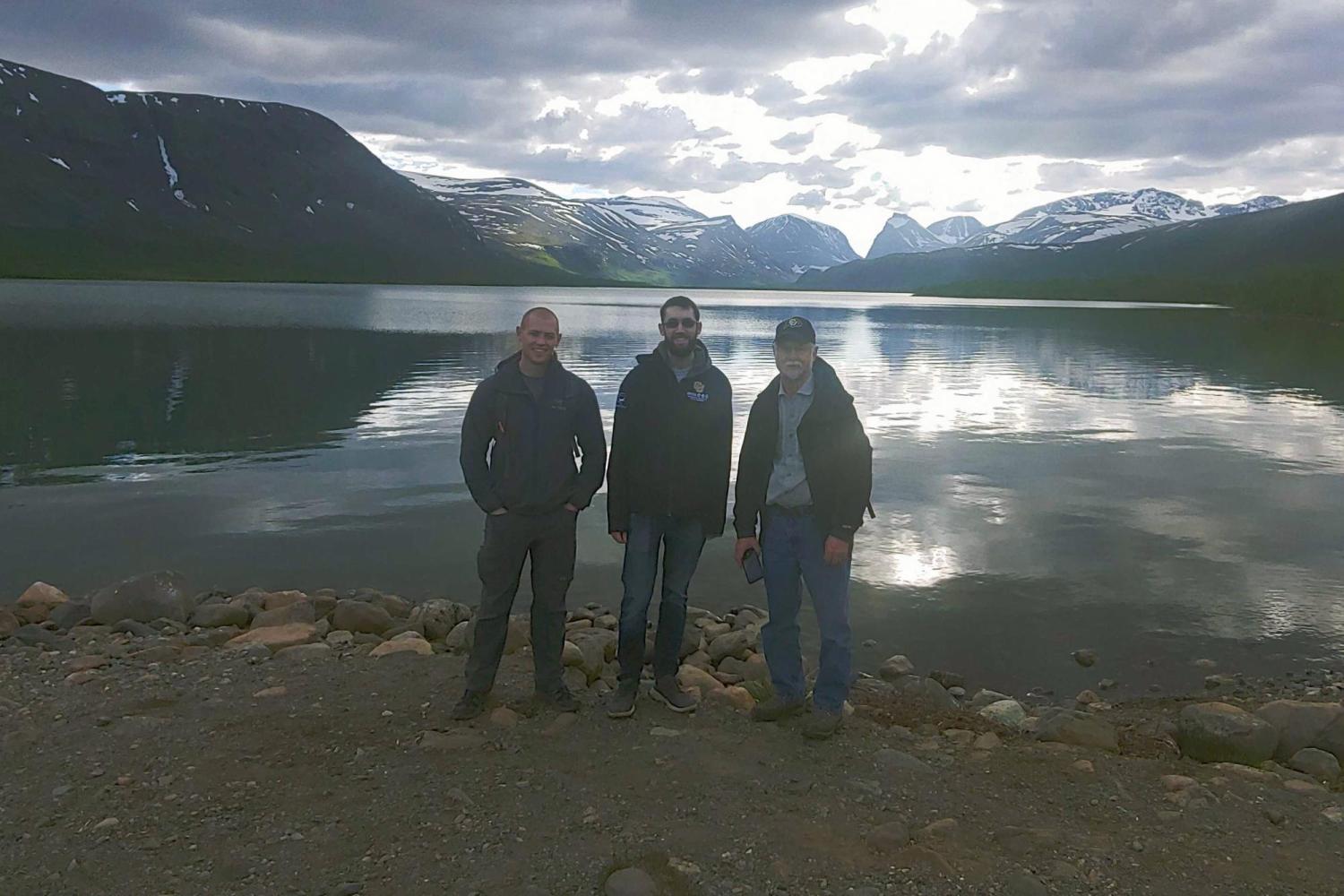Conducting aerospace research north of the Arctic Circle

(L-R) Graduate research assistants Joseph Pointer, Nicholas Kenny, and Professor Dale Lawrence enjoying a hike on June 20 near the Esrange Space Center in northern Sweden, about 90 miles north of the Arctic Circle.
University of Colorado Boulder students and faculty are at the Esrange Space Center in Sweden on a field campaign to collect stratospheric turbulence and particulate measurements to coincide with the launch of the Air Force Office of Scientific Research (AFOSR) BOundary Layer Transition (BOLT) hypersonic test vehicle experiment.
The Smead Aerospace researchers are part of the HYpersonic FLIght in the Turbulent Stratosphere (HYFLITS) project, supported by the AFOSR Multidisciplinary University Research Initiative grant entitled “Integrated Measurement and Modeling Characterization of Stratospheric Turbulence.”
BOLT will be launched on a sounding rocket. The flight experiment is designed to study “boundary-layer transition” where the smooth “laminar” flow of the air in the layer directly adjacent to the vehicle surface transitions into a turbulent boundary layer.
This information is important for hypersonic vehicle design since the heating rate of the turbulent boundary layer is about eight times that of the laminar boundary layer.
The HYFLITS campaign is supporting BOLT, collecting turbulence and particulate data in the stratosphere to be used the characterize the conditions in the stratosphere during the flight of the BOLT vehicle both on the way up and on the way down from a peak altitude of about 160 miles.
The HYFLITS stratospheric measurements will be conducted with daily balloon launches, sometimes as many as three or four in one day, to develop a statistical description of the stratosphere.
The overall goal of the HYFLITS project is to discover, understand, and characterize the spatiotemporal description of atmospheric turbulence and particulates above 80,000 ft (24 km), and the connection of these phenomena to meteorology at lower altitudes.
Led by Smead Aerospace Professor Brian Argrow, the HYFLITS research team also includes researchers from Embry-Riddle Aeronautical University-Daytona Beach and the University of Minnesota, Twin Cities.
Nicholas Kenny inflates a balloon in the Esrange Space Center facility in preparation for a launch on June 16, while Lawrence and Pointer look on.
Photo credits: HYFLITS Co-PI, ERAU Professor Aroh Barjatya.

